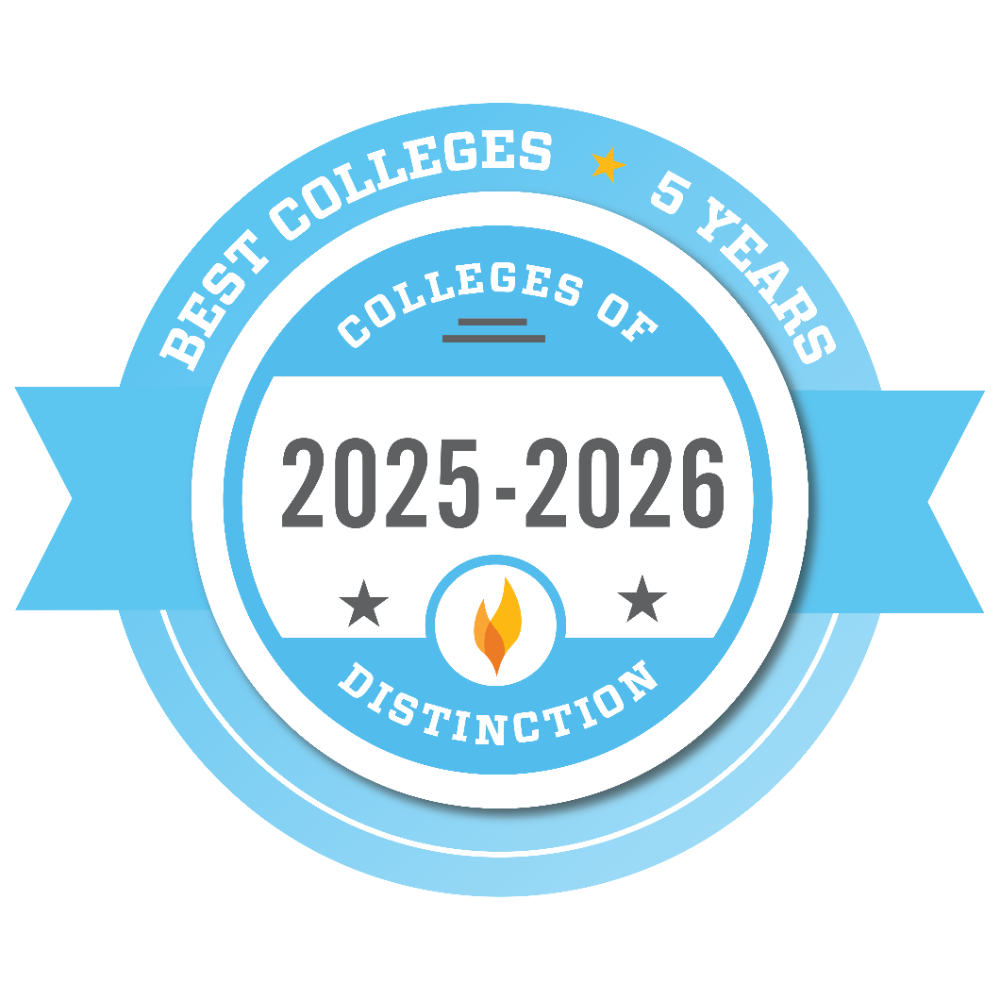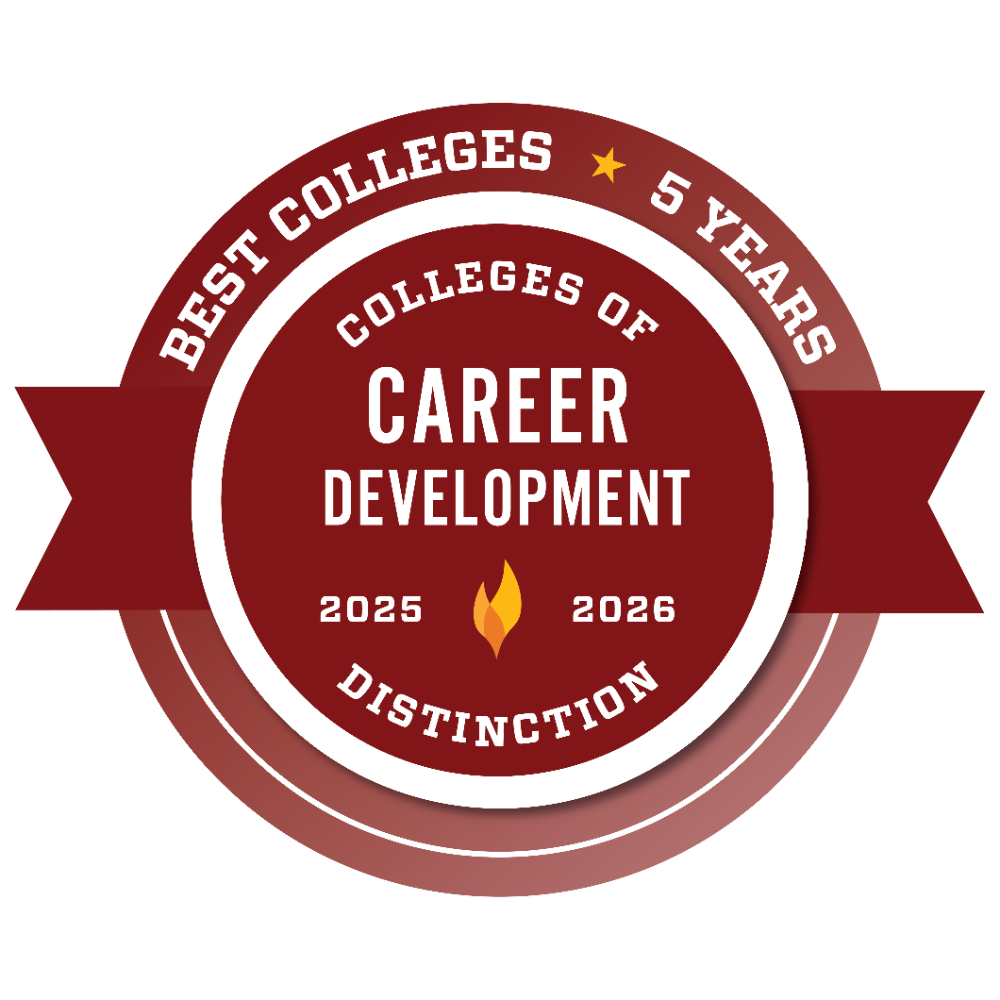Bachelor of Science in Biology
-
Degree
Bachelor's
-
School
Art & Sciences
-
Program Feature(s)
Specialized Tracks, Accelerated Pathways, Internships
Program Overview
The mission of the Bachelor of Science (B.S.) in Biology program at Franciscan Missionaries of Our Lady University is to create quality educational experiences in all areas of biology and chemistry, especially those integral to the health of the population. The core principles of scientific inquiry and ethics serve to integrate coursework throughout the curriculum.
Students enrolled in the biology bachelor’s degree program can choose from four specialized educational tracks or pathways: Biochemical Analysis (BA), Pre-Professional Human Medicine (HMED), the Accelerated 3+2 Pathway to Physician Assistant Studies (3+2 PA) or the Accelerated 3+3 Pathway to DPT Studies (3+3 DPT).
Through the multidisciplinary biology major, students will learn the fundamentals of biology, chemistry and physics as well as gain hands-on experience in laboratory settings. Depending on the educational track, students have the opportunity to take classes in subjects such as psychology, microbiology, instrumental analysis, human anatomy and physiology, organic chemistry, vocations in the life sciences, pathophysiology and forensics and to pursue the Certificate in Forensic Science.
On This Page
Program Contact
Natalie Lenard, Ph.D. | Program Director
Phone: (225) 526-1660
Email: Natalie.Lenard@franu.edu
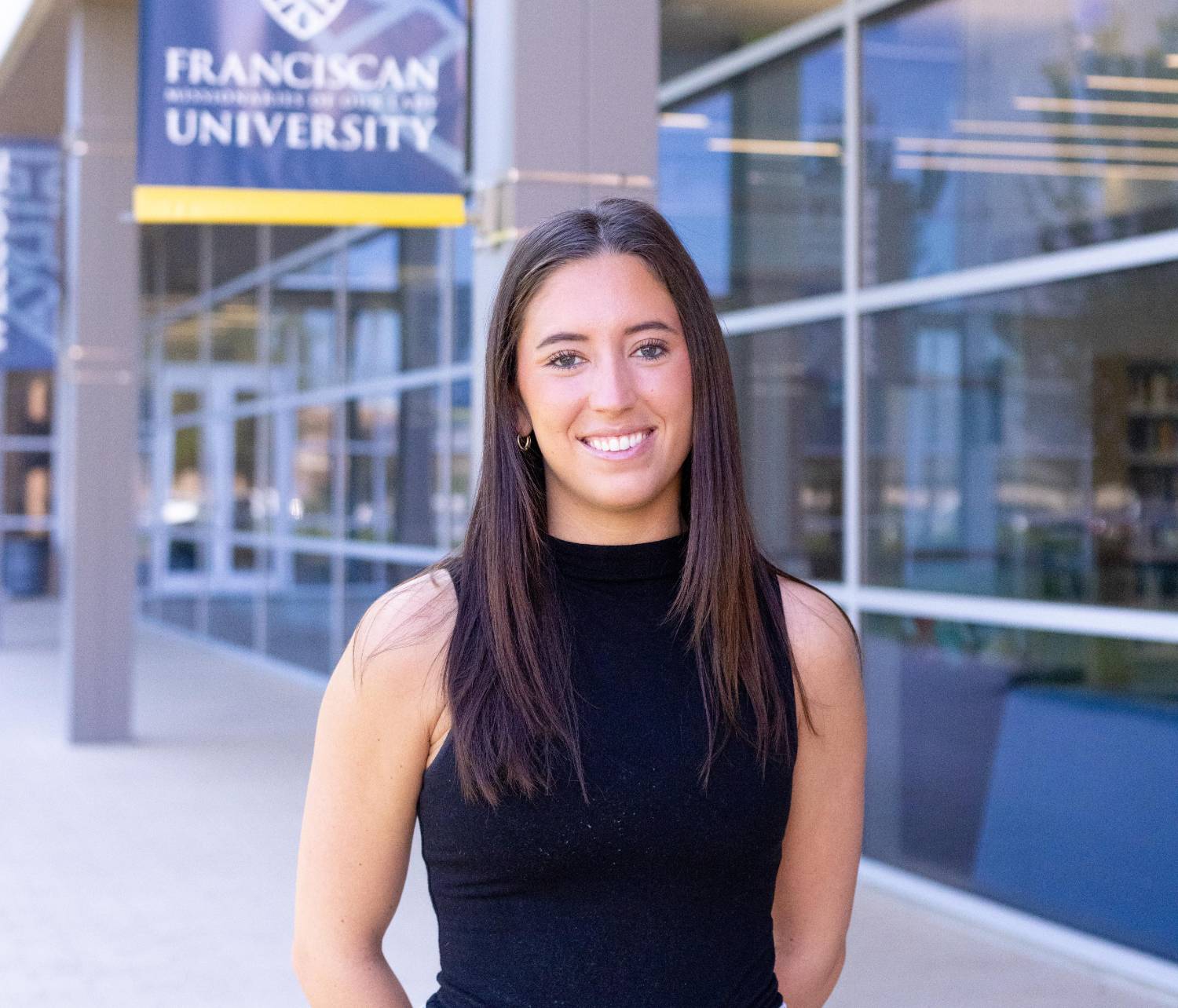
“The biology program makes me feel like I am right at home. The environment is encouraging, and everyone around me pushes me to be the very best version of myself. It is a place where you meet great friends and have professors who genuinely care about your academic and personal success. Choosing to study here was one of the best choices I have ever made!”
Hanna Manuel
Biology Student
Biology Potential Career Outcomes
Laboratory Scientist
Work in clinical or research laboratories conducting experiments, analyzing biological samples and supporting discoveries that improve healthcare and scientific knowledge.
Forensic Analyst
Work in crime labs to collect and analyze evidence, applying forensic science to criminal justice. Analysts may specialize in drug analysis, toxicology, firearms, fingerprints, DNA or crime scene investigation.
Graduate Studies
Each of our four specialized tracks are designed to prepare students for graduate-level education. Whether your goal is to become a physician, physician assistant, physical therapist, dentist or pharmacist (among others), the biology curricula provide the foundation needed to succeed in competitive professional programs.
Industry Impact
A biology degree equips you for careers in pharmaceuticals, biotechnology, environmental testing and government agencies. It also provides a strong foundation for roles in healthcare, research and education, opening doors to diverse opportunities in science and industry.
Let your interests guide your learning by choosing from two academic tracks or two accelerated pathways within the Bachelor of Science in Biology program: Biochemical Analysis, Pre-Professional Human Medicine, 3+2 Physician Assistant Pathway or the 3 + 3 DPT Studies Pathway.
Ready to plan your next steps? Book a biology advising appointment to explore which option is right for you.

Biochemical Analysis Track
This track prepares students for lab intensive careers that integrate biological and chemical concepts, instrumentation and analysis and for graduate degrees (MS, PhD) in multiple biological, chemical or biomedical disciplines.
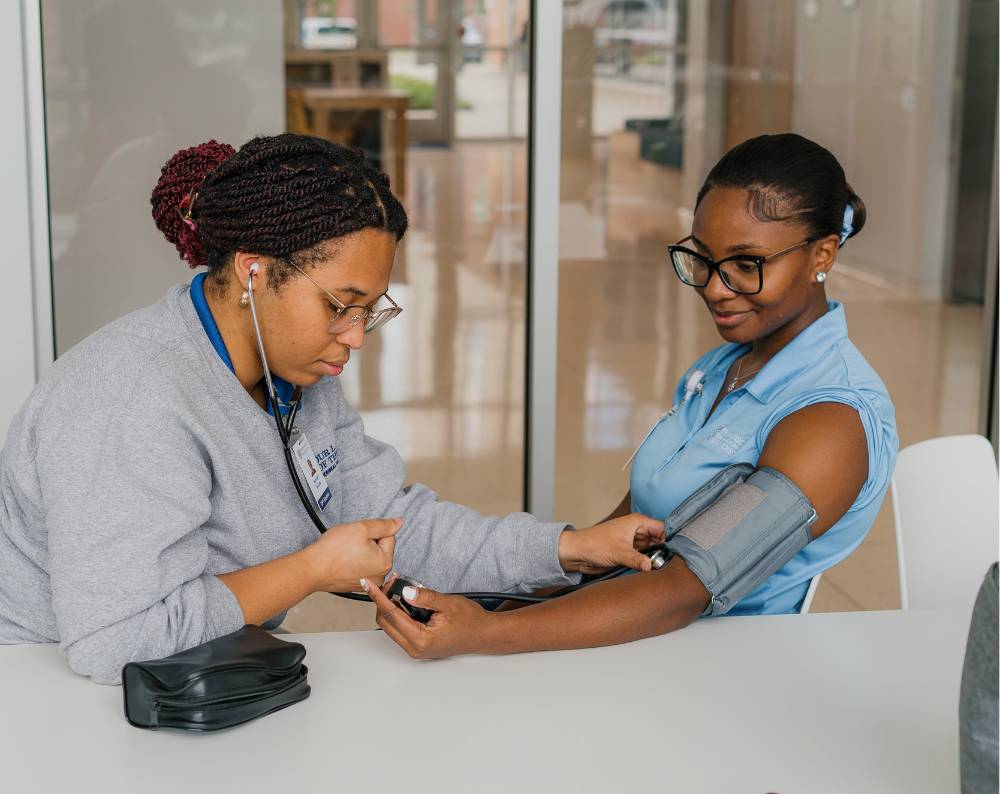
Pre-Professional Human Medicine (HMED) Track
This track prepares students for admission to and postgraduate education in, for example, medical (MD, DO), dental (DDS, DMD), veterinary (DVM), physical therapy (DPT) and physician assistant (MMS) programs worldwide.
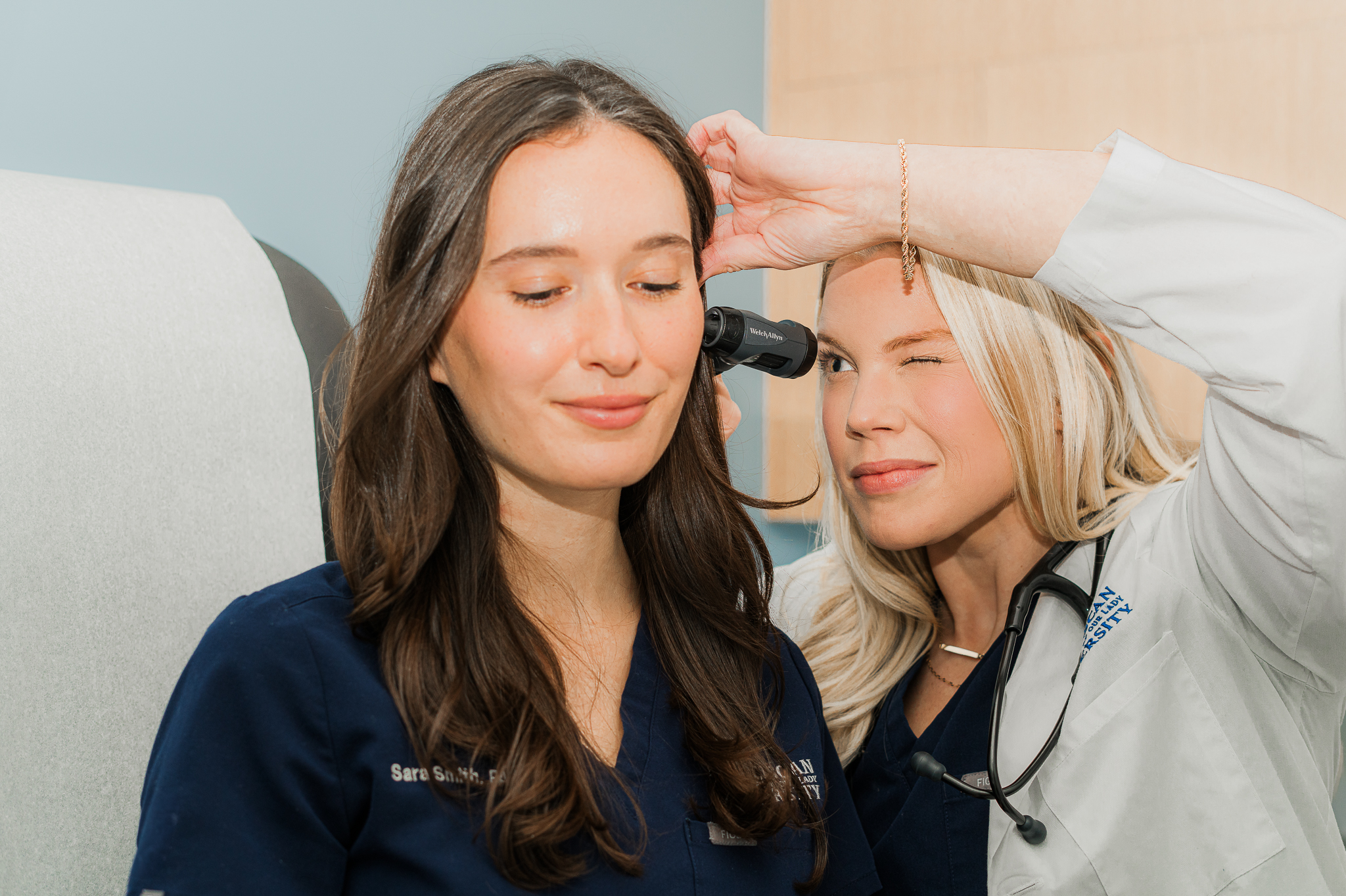
Accelerated 3+2 Pathway to Physician Assistant Studies
This pathway allows qualified students to be accepted into the 28-month PA program (Professional Phase) after successfully mastering the initial 3.5 years of Biology-Human Medicine curriculum (Pre-Professional Phase).
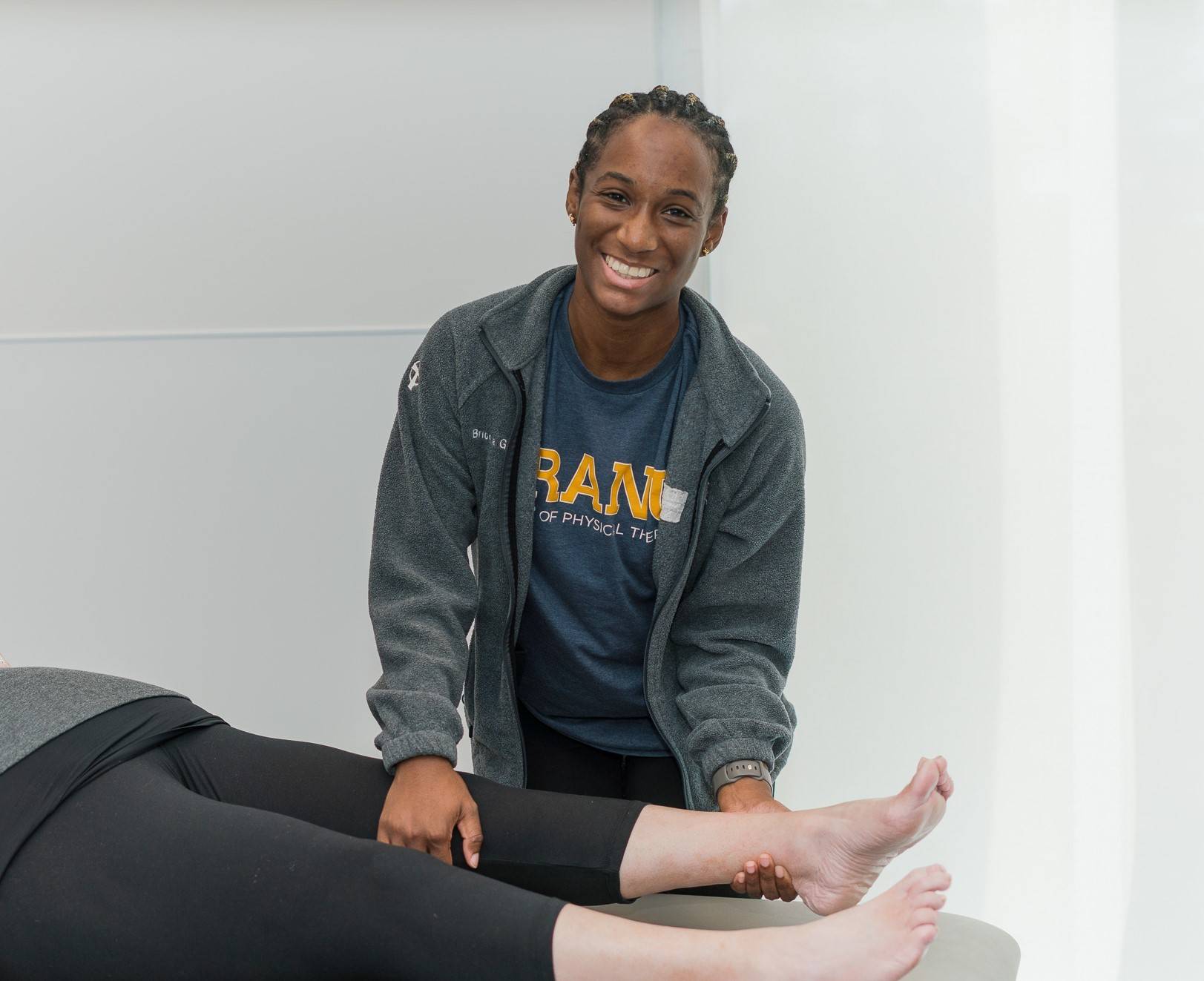
Accelerated 3 + 3 Pathway to DPT Studies
This pathway is exclusively for students pursuing Doctor of Physical Therapy at FranU. Students complete three years of undergraduate coursework before entering the DPT program, earning both a bachelor’s degree and a doctoral degree upon completion of the program.
Program Admission Requirements
Students must declare a major in the Bachelor of Science in Biology program before completing the final 60 credit hours required for the degree. Applicants to the program must meet with a faculty advisor to develop a degree plan. Requirements for acceptance into the program (except the Accelerated 3+2 Pathway to Physician Assistant Studies) are the same as for acceptance to Franciscan Missionaries of Our Lady University.
To learn more about admissions, visit the Undergraduate Admissions Requirements page.
Program Goals
The goals of the Bachelor of Science in Biology are:
- 80% of graduates in the GPA upper quartile who seek to further their education will be admitted to a graduate program within 12 months of graduation.
- 60% of graduates will be involved in community service and/or a professional organization within 12 months of graduation.
- 80% of graduating seniors will agree or strongly agree with the following statements:
- I am confident in my ability to be productive in a science laboratory.
- The curriculum has adequately prepared me for standardized exams necessary for successful admission into graduate schools.
- 80% of graduating seniors will indicate that coursework has contributed a fair amount
or a great deal to their learning gains in the following:
- Using the scientific method to solve problems effectively.
- Understanding the relationship between science and ethics.
Program Learning Outcomes (PLOs)
The program learning outcomes for the Bachelor of Science in Biology are:
- Use and, when identified as applicable, integrate natural science concepts to illustrate the processes of life.
- Apply the scientific method in laboratory and simulated scenarios to solve problems in an ethical manner.
- Communicate scientific findings and, when identified as applicable, their social implications in the context of the Franciscan values.
- Design and execute research using biological and chemical laboratory techniques and instrumentation (BA only).
- Apply anatomical and physiological concepts to the study of human biology and pathophysiology (HMED, 3+2 PA, 3+3 DPT only).
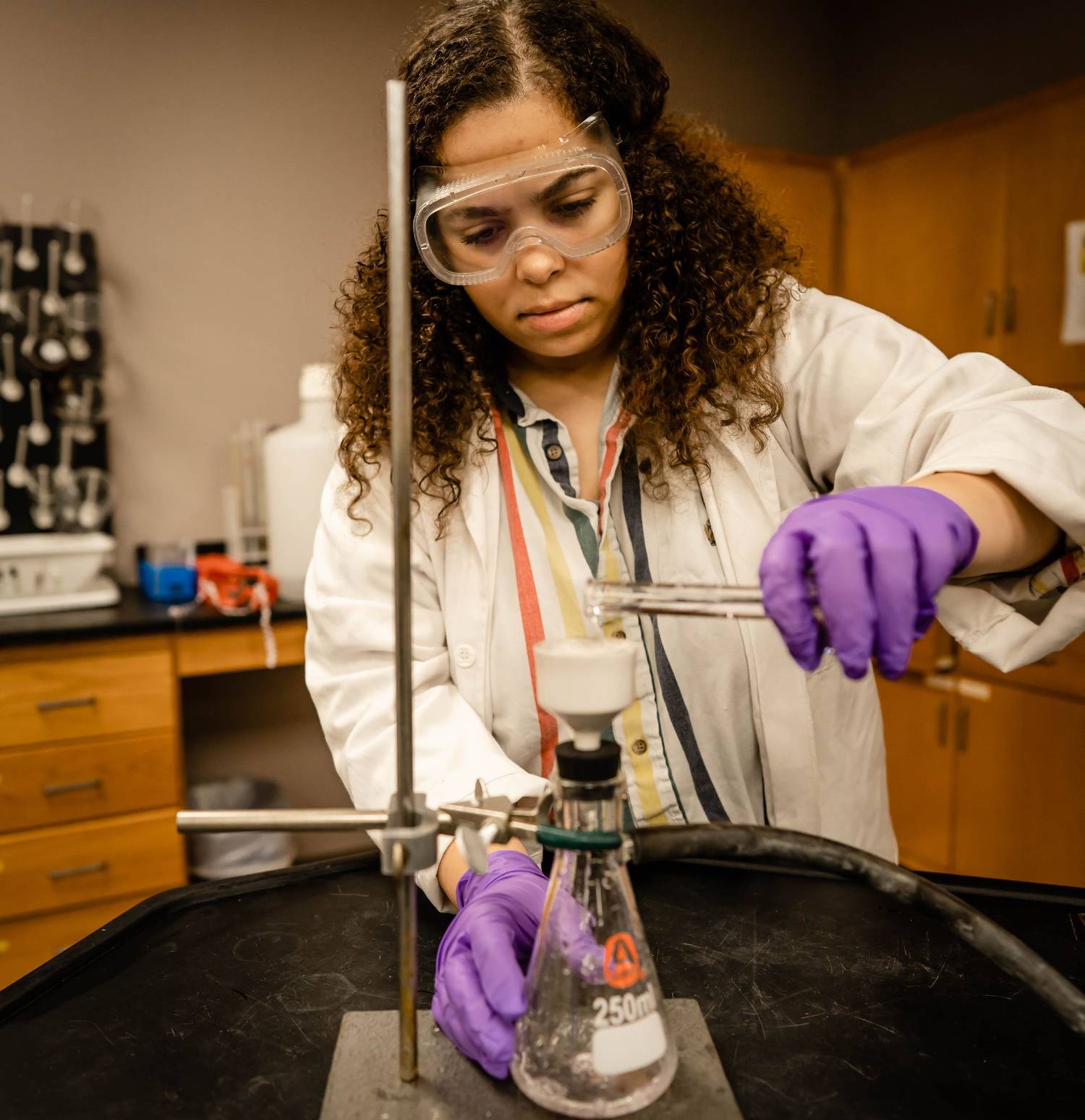
Shape Your Future in Biology at FranU
Our Bachelor of Science in Biology program offers four distinct curricula designed to align with your career goals.
No matter which path you choose, you’ll gain hands-on experience through internships, research opportunities and a curriculum rooted in Catholic values.
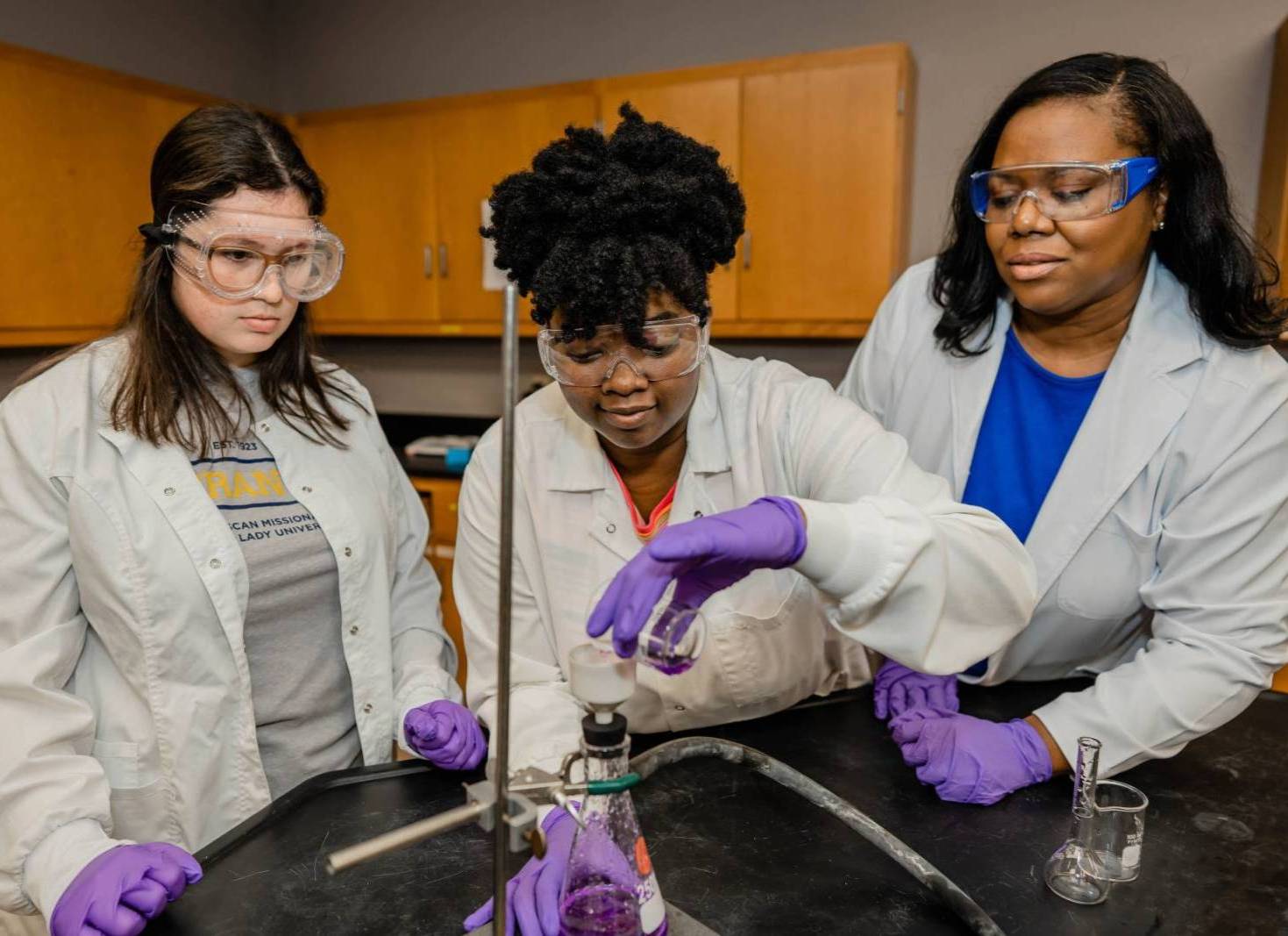
Meet Our Biology Faculty
FranU’s biology faculty are accomplished educators and scientists with deep expertise across diverse disciplines. They are passionate about helping students apply scientific principles to real-world challenges in laboratory science, research, medicine and beyond. Through mentorship and hands-on learning, our faculty prepare you to excel in your chosen track and achieve your career goals.
Frequently Asked Questions
Since 2013, 83% of B.S. in biology graduates have been ultimately accepted to their first-choice medical schools, physician assistant programs and doctor of physical therapy programs, among others (66% were successful on their first try).
The biology bachelor’s degree will build a solid base of knowledge in the principles of biology and chemistry while also providing track-specific courses in concentrated subject areas. During the program of study, students will take courses in biology foundations, general chemistry, biology and chemistry labs, algebra, psychology, organic chemistry and microbiology. Beyond these foundational courses, students will encounter diverse course offerings tailored to each unique program track.
Biology program graduates can pursue careers in a wide range of fields. Those who enter the workforce directly can pursue laboratory careers in academia, industry and forensics. Many choose to pursue both research and clinical post-graduate studies. For example, graduates of the Pre-Professional Human Medicine track are well-prepared to matriculate into clinical graduate programs that prepare them to become physicians, physician assistants, physical therapists, dentists and veterinarians. Those who complete the Accelerated 3+2 Pathway to Physician Assistant Studies Pathway or Accelerated 3+3 Pathway to DPT Studies tracks are prepared for the MMS in PA and the DPT graduate programs at FranU.
Salary outlooks for biology careers can vary depending on specialization and degree level, and according to the Bureau of Labor Statistics (BLS), individuals with a degree in biology earn a median annual salary of $65,000, with 69% employed at the bachelor’s degree level. The BLS also reports that microbiologists can earn an annual salary of $79,260, and biological technicians, who are responsible for assisting with laboratory tests and experiments, earn a median salary of $48,140.
Graduates of the bachelor’s degree in biology program (tracked since 2013) have been accepted to the following programs or hired by the following employers:
Graduate Programs
- Cardiovascular Sciences/Perfusion
- Midwestern University in Arizona Cardiovascular Sciences/Perfusion
- Counseling
- Southeastern Louisiana University Master of Science - MS, Counselor Education, School Counseling and Guidance Services
- DPT
- FranU
- LSU Health Shreveport
- University of St. Augustine for Health Sciences
- Law
- LSU Paul M. Hebert Law Center
- Master of Health Administration
- FranU Master of Health Administration Program
- LSU-Shreveport
- Medicine
- American University of the Caribbean Medical School
- LSU Health Shreveport
- LSU Health New Orleans
- St. George
- Naturopathic Medicine
- Southwest College of Naturopathic Medicine
- Nursing
- University of South Alabama College of Nursing
- William Carey University School of Nursing
- Occupational Therapy
- LSU Health
- Osteopathic Medicine
- Edward Via College of Osteopathic Medicine
- William Carey College of Osteopathic Medicine
- Pharmacy
- University of the Incarnate Word School of Pharmacy
- University of Louisiana Monroe Pharmacy
- Physician Assistant
- Our Lady of the Lake/FranU Physician Assistant Program
- Lock Haven University
- LSU Health New Orleans
- LSU Health Shreveport
- Mississippi College
- Mississippi State University
- Radford University
- South College
- University of South Alabama
- University of Texas Medical Branch
- Research
- LSU Graduate School - Biology
- LSU Graduate School - Biological Engineering
- Whiddon College of Medicine at the University of South Alabama
- Social Work
- University of Southern California School of Social Work
Employers:
Agilent Technologies
AmSpec Group
Baton Rouge Orthopaedic Clinic
Children's International Medical Group
City of Tigard Police Records
Deltech Monomers
Department Of Public Safety And Corrections Crime Lab
Dow
FMOLHS
LDH Public Health
Louisiana State Police
Olin Corporation
Owen Biosciences
Oxbow Calcining
Pennington Biomedical Research Center
Reliapath
Rubicon
SNF Holding
At FranU, we understand that financing your education is one of the most important decisions you will make. We strive to provide our students with the highest level of care and professionalism as stewards of federal, state and institutional funds. Many of our students receive financial aid in the form of grants, scholarships and loans.
To discover estimated costs, use FranU’s Undergraduate Tuition Calculator tool. For information on internal and external scholarship opportunities, visit the Scholarships page. You can also learn more about the financial aid process and tuition rates on the Financial Aid page.
Resources
| Document Title | Type | File Size | |
|---|---|---|---|
|
Document Title: Premedical Advisory Committee Policy |
Type: pdf |
File Size: 90.22 KB |
Accreditation
For information about our SACSCOC accreditation, please visit our Institutional Accreditation page.
The Learning Experience
Get a preview of FranU’s Bachelor of Science in Biology program, with four specialized curricula. Explore the curriculum for each to see which one aligns with your future:
Biochemical Analysis Pre-Professional Human Medicine3+2 Pathway to PA Studies 3+3 Pathway to DPT Studies
- BIOL 1315 Biology for Majors I
- BIOL 2310/2311 Human Anatomy and Physiology I & II
- BIOL 2325 Fundamentals of Microbiology
- BIOL 3325 General Genetics
- BIOL 4320/4321 Biochemistry I & II
Where Progress Makes Headlines
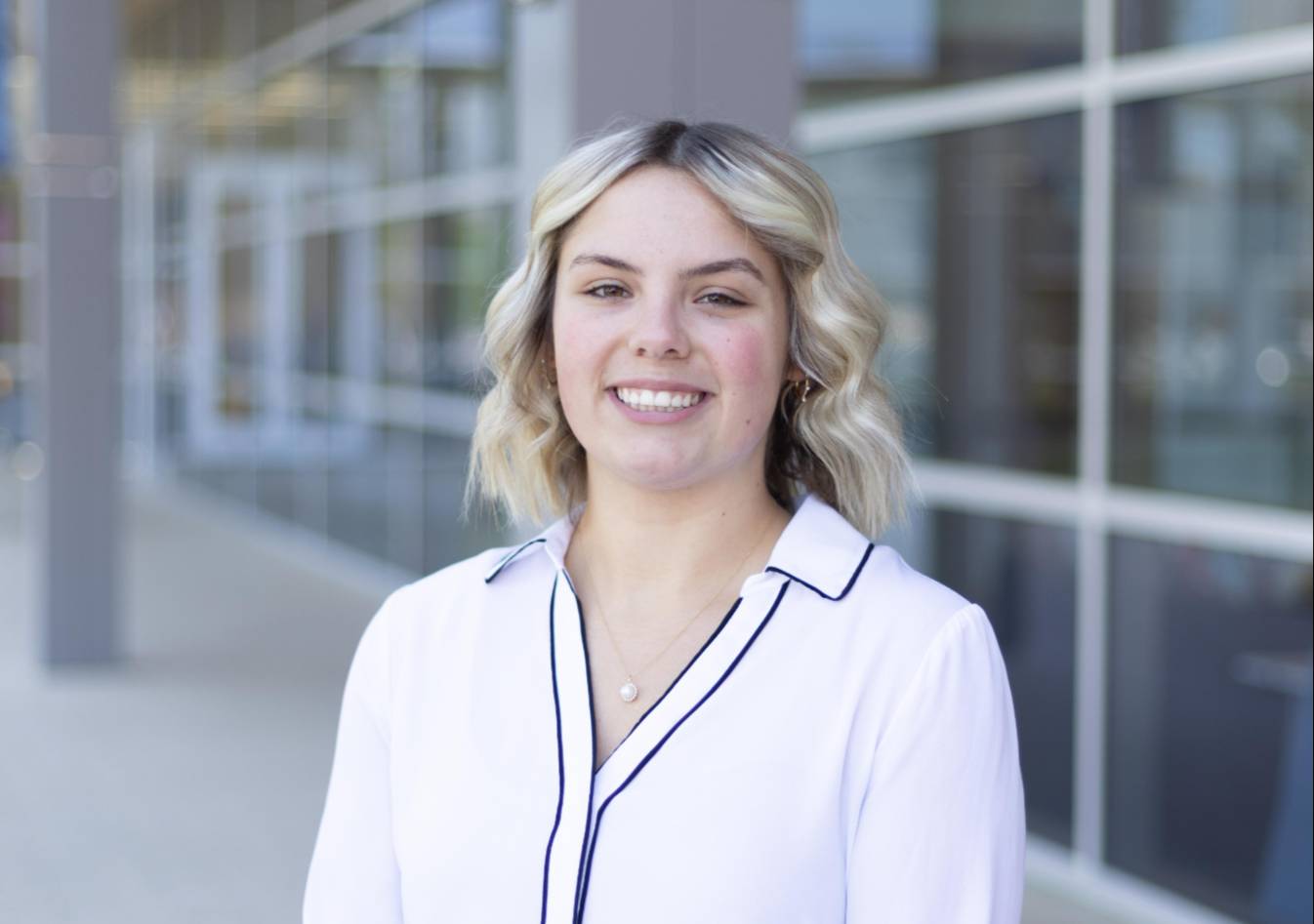
Creating a Legacy of Service: Harrah Shiflet
Inside the academic life of Student Government Association Senator Harrah Shiflet
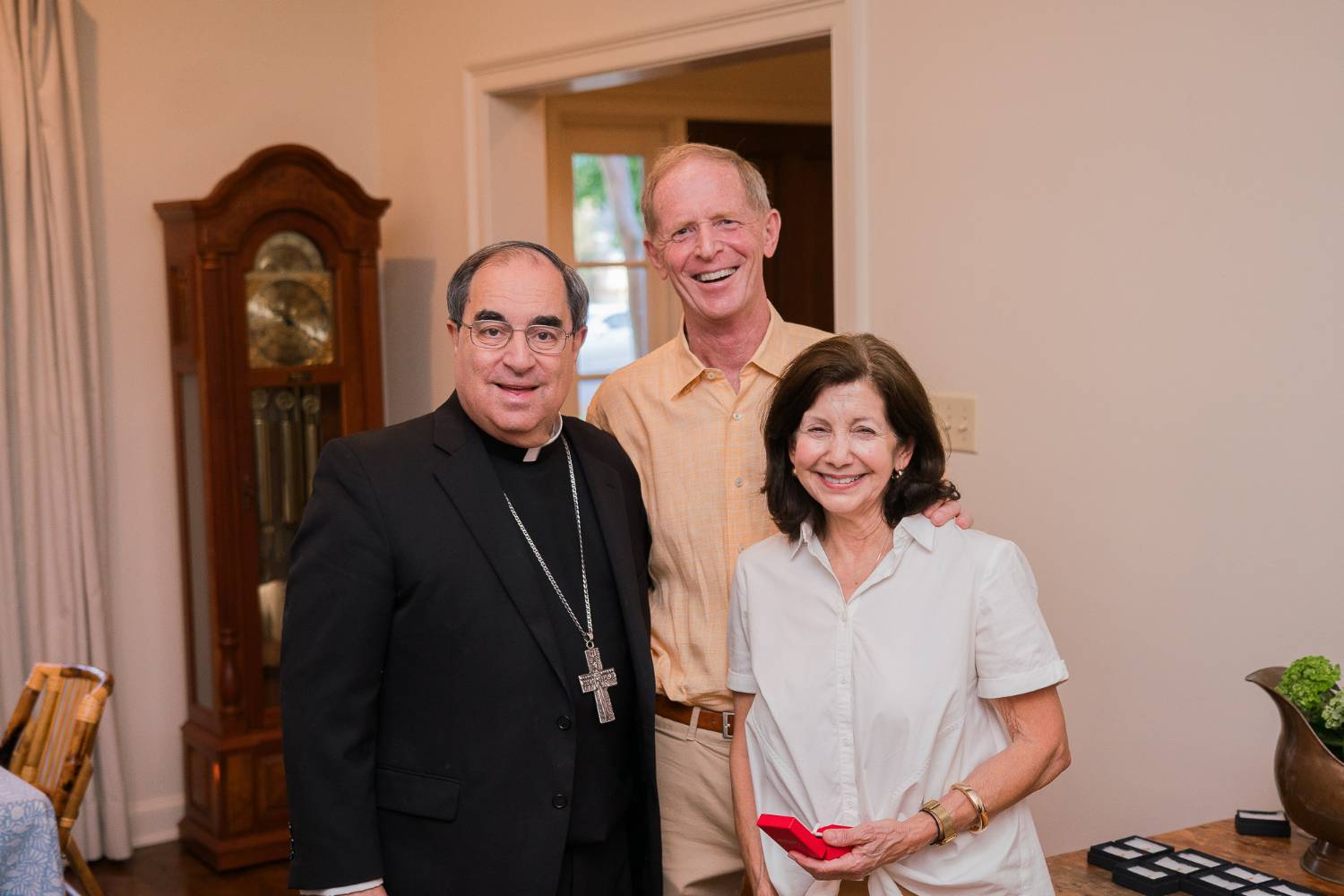
The Bishop’s Circle: Advancing FranU’s Mission
Learn how committed donors in the Bishop’s Circle come together to advance FranU’s mission and make a lasting impact.

FranU Graduate Finds Her True Calling Through Psychology and Service
FranU Alumna Emily Smith's path after graduation


